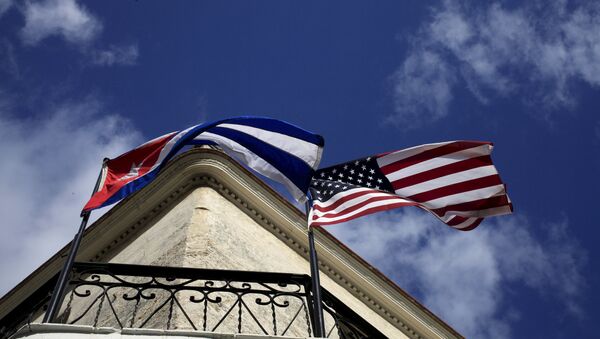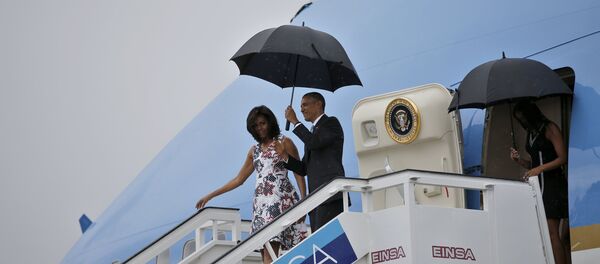"Now, these relations are acquiring a new form, a vast field for bilateral cooperation, and, of course, we are interested in Cuba, which is a friendly country to us, maintaining good relations with all its neighbors, primarily the United States," Peskov told reporters.
The island nation’s economy was closely linked to that of its northern neighbor prior to the six-year Cuban Revolution that toppled a coup-imposed Batista regime in 1959. Obama announced the normalization of diplomatic ties in December 2014, leading to the gradual removal of crippling sanctions against Cuba.
His visit marks the first time a sitting US president traveled to Cuba since Calvin Cooldige in 1928.
Commenting on the weakened decades-long trade embargo, including partially lifted travel and money transfer restrictions, Peskov outlined Russia’s consistent opposition to the sanctions regime.
"In terms of international relations, you know that Moscow has many times and at various levels expressed criticism toward supporters of sanctions techniques, referring primarily to their ineffectiveness and futility. So, of course, we can only welcome the rejection of a sanctions policy in international affairs in general," he asserted.
Washington's trade embargo on Havana, still maintained despite the rapprochement, is estimated to have cost the Cuban economy up to $100 billion in 50 years.



